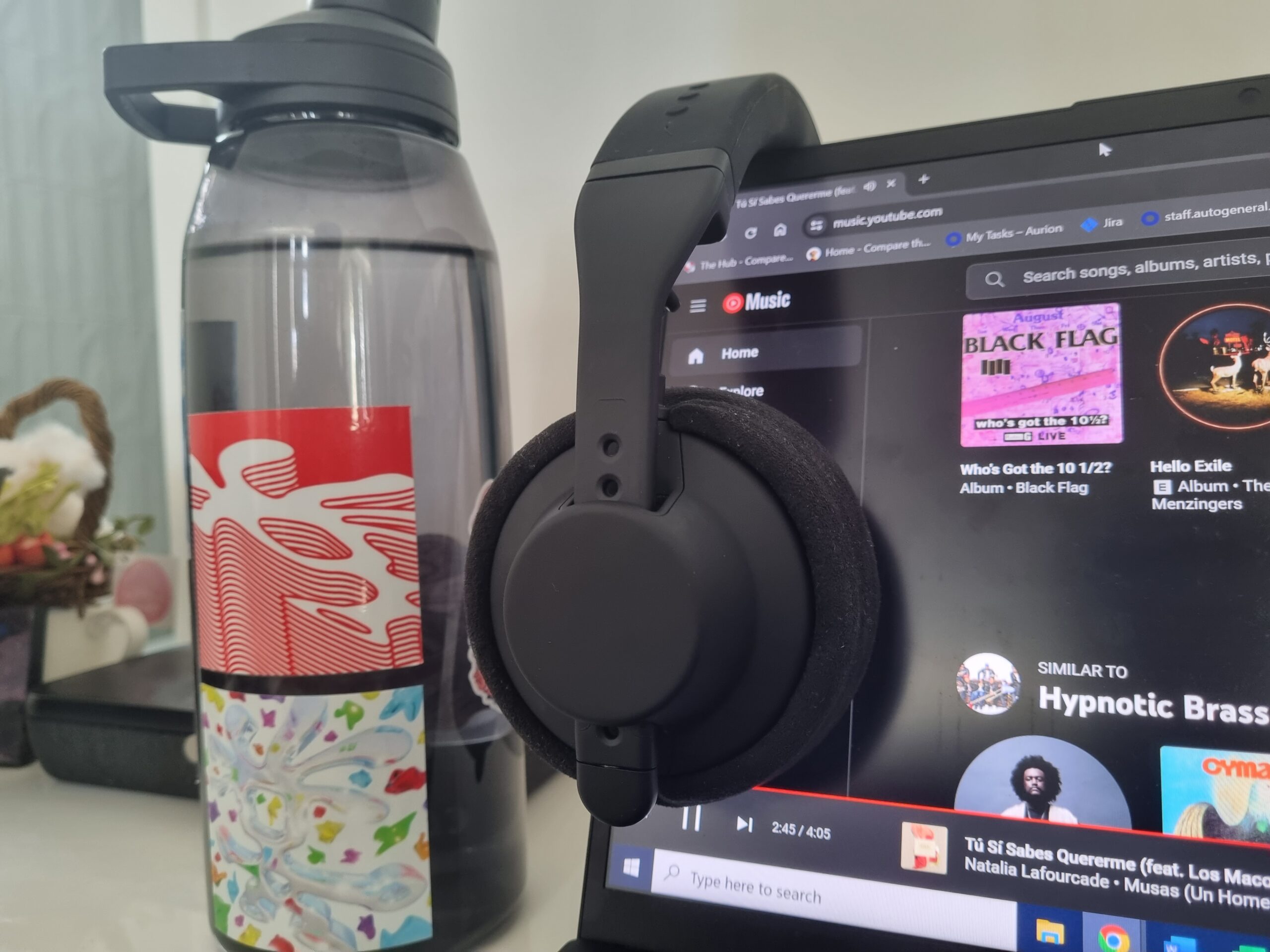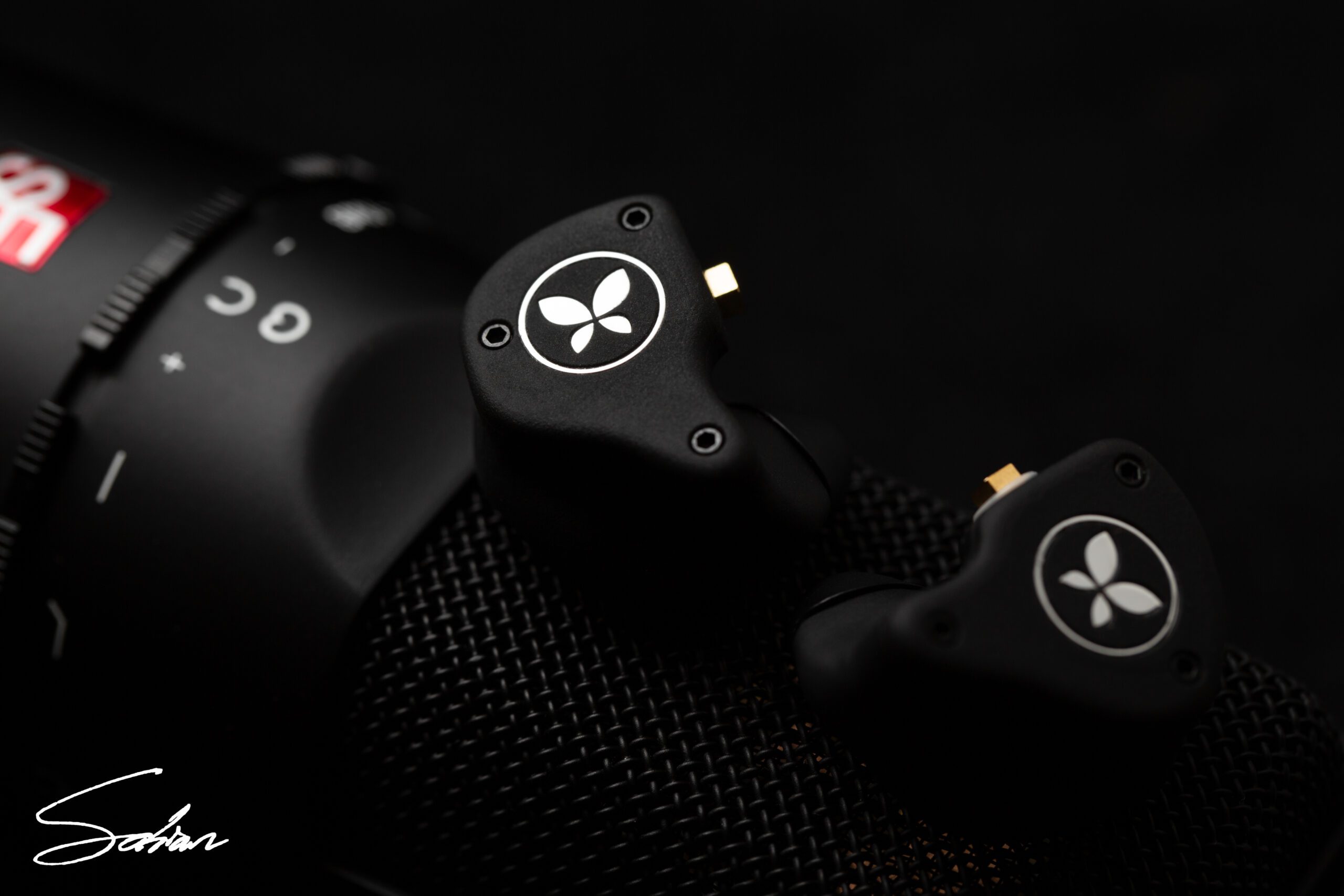Comparisons
Unique Melody Maestro V2 ($1968)
When looking at the gross picture, Maestro and Zeus share several distinct similarities in their general presentation. For starters, both impress with a spacious, three-dimensional stage, and boldness in their sound. But where Maestro doubles down on tone, Zeus raises with performance.
Both monitors share a large stage, with almost even proportions in width and depth. Similarly, their layering ability is good, and their imaging precise. The result is outstanding separation, with not much to fault. Even so, Zeus’ sound is more articulate, resulting from its greater resolution, and even more precise imaging. The result is a better-defined image, with greater focus.
Similarly, both monitors provide pleasant variations of BA-driven bass. Zeus has the better low-end extension, with more precision in its sub-bass hits. Its mid- and upper-bass are slightly forward, displaying nice texture and definition – a more detailed bass presentation. The Maestro in turn provides greater sub-bass quantity, although its extension isn’t quite as deep. But it provides more body in its bass, making for an engaging low-end. Zeus on the other hand, provides a slightly more technically proficient bass.
Zeus boasts a mighty midrange, with Maestro equally having nothing to be ashamed of. Both have nice body in their sound, in terms of both instruments and vocals. But there is a crucial difference in the way they are constructed; while Maestro’s vocals have nice size and slight forwardness, Zeus constructs significantly deeper and more powerful vocals. A more solidified, dense vocal presentation. Maestro on the other hand has a bit more body in its instruments, as well as a truer tone.
Similarly, Maestro’s treble trumps Zeus with a more accurate timbre, and natural decay. Zeus shares a similar definition of its treble, while conveying a higher amount of detail. However, Maestro’s treble is simply more realistic, as well as slightly smoother. Zeus parries with a quicker decay, while having the better top-end extension.

64 Audio A18 Tzar ($2999)
The true battle of the titans. For even though the 5-Way has taken top spot, many, if not most, might argue that either of these two would be more deserving. The A18 with its high resolution, energetic sound, and wide stage; Zeus-XIV with its impressive midrange, combined with excellent performance.
The A18 and Zeus each provide spectacular stages, a worthy reflection of their top-tier status. The A18’s stage is significantly wider than that of Zeus, while Zeus parries with greater depth. A vastly wide stage, compared to a relatively more compact, but more three-dimensional stage. Even more importantly, is its use of depth: Zeus betters the A18 in terms of layering ability, resulting in neater separation. The structure of the stage is slightly more organized, despite the A18’s impressive width.
Regardless of the module, the A18 overpowers Zeus when it comes to bass. They share similar low-end extension, but the A18 packs quite a punch. Its sub- and especially mid-bass has greater quantity, resulting in greater impact. Zeus’ bass is precise, but it can’t match the A18’s sense of engagement, based on quantity alone. In terms of tone and definition, there isn’t much between them to spare, although the A18’s decay is a bit quicker.
Two midranges with little in common. This time round, Zeus has the more forward, powerful midrange. Its vocals have greater body and depth, resulting from its richer lower midrange. Its instruments have nice size, and are neutral in tone. The A18’s emphasis lies a bit higher up: its vocals aren’t as dense, but there’s more energy in its instruments. The A18’s lower treble tuning provides a touch of sparkle, while increasing their clarity. As a result however, Zeus’ timbre is slightly more accurate.
The A18’s treble is more prominent, but equally, more detailed and quicker. Zeus’ treble performs excellently, but can’t quite match the A18’s performance – one of its outstanding feats. In addition, the A18’s treble has more sparkle. Zeus’ treble however is slightly more accurate in terms of timbre, resulting from its more neutral tone. Finally, the A18’s top-end extension is greater, giving it the edge when it comes to resolution.

Verdict
Almost reaching the top, is mighty Zeus – an impressive monitor with a forward midrange, and outstanding performance. There’s a certain authority in Zeus’ presentation; a confidence in its attitude, that suits it well. But alongside Zeus’ powerful midrange, comes a treble tuning with a few remarks – a tuning that brings divisiveness in opinion. Zeus’ treble plays a strong role in determining its presentation, and inadvertently, people’s appreciation for it. As a result, it assumes a more neutral stance when paired with its stock SPC cable – even creeping towards reference. Some might even find it bright, or harsh. But this has been a strange review to write; unfamiliar, almost. For the Zeus I’ve described, isn’t the Zeus I know. It isn’t the Zeus I listen to.
When driven by a natural-sounding source and a proper, warmer cable, Zeus gains in naturalness, and not only provides a powerful, but deeply emotional sound. Zeus has a soul. A full-bodied midrange, superbly balanced from the lower to the upper midrange. Zeus is smooth. In this case, Zeus joins the UE18+ and Prelude in the battle for ‘best vocals’, with the Prelude offering the warmer, denser vocals, and the UE18+ the greater balance; Zeus on the other hand, combining elements from them both. And all of this, with a more than impressive performance. A highly resolved sound, presented in a spacious, three-dimensional stage. This is the Zeus I know, and listen to on an almost daily basis.
Empire Ears Zeus-XIV
+Bold midrange
+Impressive presentation
-Treble tuning at the cost of naturalness
-Sub-bass power
The scoring can be viewed in the introduction post.
Manufacturer website:
www.empireears.com




2 Responses
Because none of the reviewers own both. They don’t really hand them out easily, and they’re pretty expensive to buy.
Why are there no comparative reviews between A18 Tzar and tia Fourté from the same reviewer?